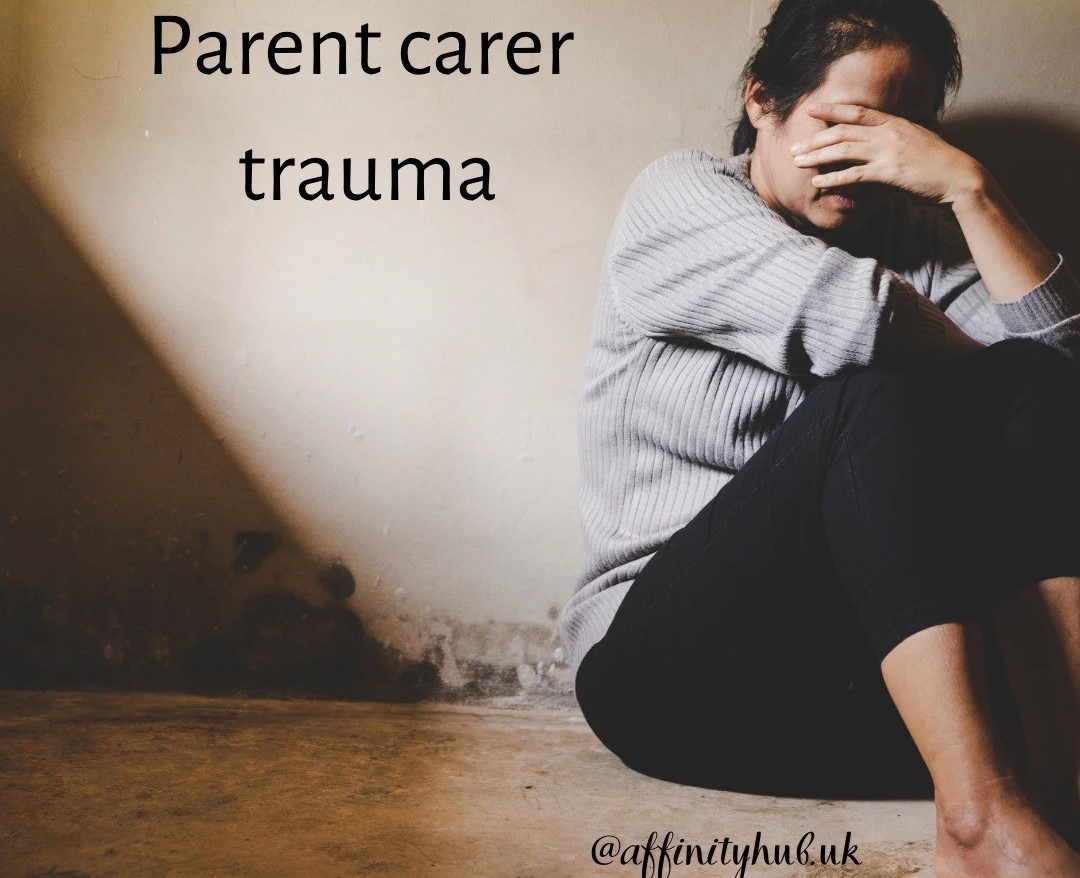Jo Griffin is a parent carer and psychologist with an interest in the emotional wellbeing of parent carers. A new discussion document on this topic is now available here: https://rb.gy/nf5tsn
Content warning: this article refers to trauma and examples based on parent carers’ lived experiences. If you do not feel ready to read it now please save and bookmark for a later time when you are able to and have relevant support around you.
It is well recognised that parents of disabled children can be at greater risk of poorer mental health than other parents. What is not always recognised is that they may also be experiencing/have experienced trauma.
Trauma is when we experience very stressful, frightening or distressing events that are difficult to cope with or out of our control (Mind). It can be a single incident or ongoing events that happen over a longer period of time.
Symptoms of trauma can include:
- Stress, anxiety and feeling ‘on edge’ (‘hyperarousal’)
- Difficulty sleeping
- Reliving aspects of the traumatic experience and feeling like it is happening in the present moment (‘flashbacks’)
- Feeling numb, spaced out or detached from things going on around you (dissociation)
Traumatised individuals may also turn to unhelpful coping strategies to help them deal with difficult feelings, such as withdrawing from others, drinking too much alcohol, overeating or self-harming.
If left unprocessed, trauma can come out in different ways. Sometimes seemingly small things can trigger a traumatised response, surprising both the traumatised person and those around them.
Parent Carers
Research suggests many parent carers experience traumatic events, both major events (‘Big T’ trauma) and ‘small t’ cumulative and ongoing traumas (Griffin, 2021; Emerson, 2019). What causes this may be different for different people.
For example:
- A parent whose child displays behaviours that challenge and the parent is regularly hit at home. They feel ashamed and don’t share this with anyone. Help is not easy to access. The parents manage this by very rarely going out, they lose contact with friends and support networks.
- A parent who experienced birth trauma having to regularly attend the same hospital, or similar, where the initial trauma happened. A father who witnessed his partner and child almost dying due to birth complications. Factors such as stressful waits for appointments, witnessing invasive medical procedures or having to repeat difficult histories can retrigger the initial trauma. Even seemingly small incidents (a report being lost) take on heightened sense of ‘risk’. For some parents birth trauma is compounded by how information about their child’s diagnosis or prognosis has been delivered.
- A parent becomes battle weary due to the constant “fight” for services or respite and negotiating across complex appeal systems and multiple agencies. They feel ostracised, misunderstood and sometimes not believed. Sometimes the hard-fought-for service requires great effort to maintain on the part of the already exhausted parent.
Cumulative trauma can be debilitating and is not always recognised in parent carers. This means that they do not always receive the most appropriate referral for support.
A Parent Carer Trauma Working Group, comprised of parent carers and professionals has been meeting for the last couple of years and has now released a discussion document here: https://rb.gy/nf5tsn
It can also be access via www.affinityhub.uk which signposts to emotional support.
We hope that this will encourage parent carers to seek the help they need and raise awareness amongst professionals to identify, and support, when a parent has experienced trauma.
